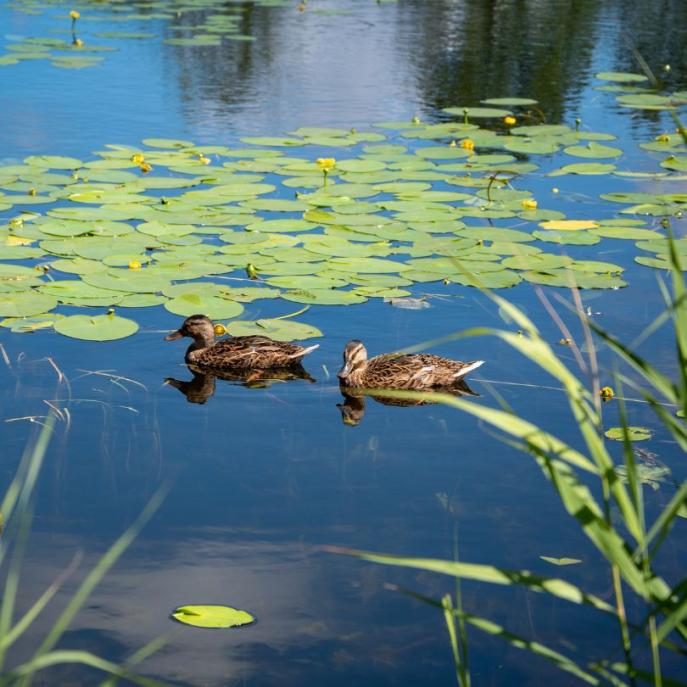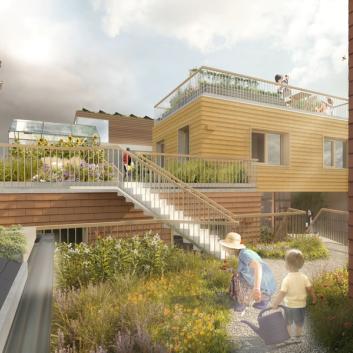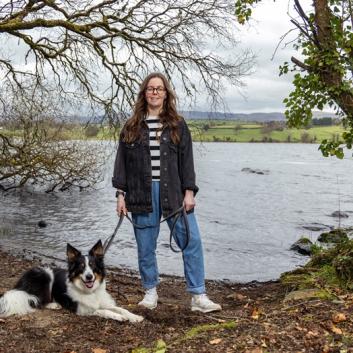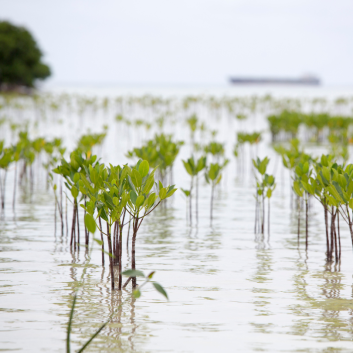What does feeding ducks at parks have to do with biodiversity?
Feeding ducks in public parks could seem like an innocent act of kindness, yet it is more detrimental to the animals and the natural environment than it appears.
The Feed Ducks Initiative is an Irish organization that is partnering with government authorities to make duck feeding in public spaces more sustainable while protecting these habitats.
Matthew Knight, Director of the Feed Ducks Initiative, explains the origins of the project: "Our story began back in 2021 in the middle of COVID. We used to take my son, Oscar, who was quite young and has autism to the park because he was really engaged with the wildlife.
He was so interested in the ducks and at that time, I always noticed people were throwing bread at the ducks.
Lots of it was floating in the water or wasn’t eaten.
I knew as much that feeding bread wasn’t right for the wildlife, so I thought to myself, what if we put a dispenser here that releases small quantities of the right stuff the public can give to the ducks instead?”

The ultimate goal of this project is to limit negative harm to biodiversity.
Matthew shares why it is so important that ducks are fed the right food and, similarly, not overfed:
“A lot of councils put up signs as to why not to feed ducks bread.
Bread in itself goes largely uneaten, then it rots and causes build-ups in pond ecosystems, which leads to algae blooms and outbreaks of diseases such as botulism. There are several knock-on effects on biodiversity from this.
Algae blooms kill off the habitats the ducks naturally feed on, which means that the wrong food also negatively impacts the environment."
The units mean that people stop bringing bread, and they also have signs on the units to explain why not to feed ducks bread and the impacts of doing so.
Every feeder built is made from recycled plastics, equivalent to 20,000 plastic bottles, and the dispensers are solar-powered.
The units are free for councils to install, and community members pay to use them while 10 per cent of the proceeds go back into environmental projects.
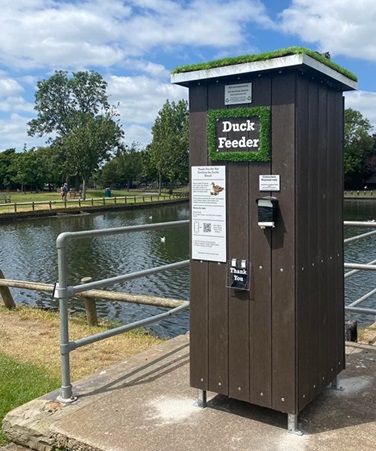
Matthew adds, “We also have a QR code on the unit that takes the community to a webpage about each habitat. It features facts about wildlife like ducks and geese, but also swans and other various animals.
This is a way to engage the community and get them to connect with nature.”
Fewer people feeding the bread also means we’re improving the water quality.
Since people aren’t bringing bread, there is also no packaging involved, so the Feed Ducks Initiative is, in fact, also reducing the number of plastic packages littering parks that would otherwise go into water bodies.
After speaking to his local council, Matthew was given permission to go to the park, where he designed a prototype to test his theory.
When that was complete, there was a reduction in overfeeding, which was a sign that this innovation was something very unique to the community.
He wondered if there was anything similar or if the same thing would work well in other parks.
Matthew explains: “We approached Cork City Council, and they were really receptive and said yes. This marked our first unit, and it was a kind of repurposed gumball machine, able to withstand vandalism but still look nice in the park. We eventually created a contactless version of the same device and put it in Cork City, and that received even more acceptance.”
At this point, Matthew’s idea had been validated in two separate parks and two separate communities.
“The kids loved it, the families loved it, and the issues we were seeking to address were decreasing.
We decided to bring this to more parks outside Cork, but to do this, we had to design a model that would be scalable and fit in other communities.”
In April 2022, the Feed Ducks Initiative exported its first solar-powered contactless duck food dispenser to the UK, the first original design of their dispensers.
The dispenser is free of charge to the community, which means the council does not need a budget to implement these feeders.
Since the dispensers are solar-powered, they do not need a direct electrical connection.
When people tap their card on the dispenser, the food is released into a tray that the person scoops out to feed the ducks on the site.
Currently, the Feed Ducks Initiative is in 23 locations, five of which are in Ireland and 18 of which are in the UK.
“People really like the duck feeding units.
There is a family amenity in the community that is low cost and they get an opportunity to learn about wildlife which creates happy memories."
In terms of challenges in getting started, Matthew found the main one to be sourcing the right people in the right departments within councils to speak to.
This meant they largely relied on people hearing about what they were doing. In saying that, this approach has still been effective since the duck feeding units have been really accepted into all the communities they are placed in.
"I think everyone can cast their mind back to a memory of feeding ducks as a child and so to think that kids now can do it in such an environmentally positive way is very rewarding.”
He adds: “We’ve only received requests to go into even more parks as a result. We’ve grown from one feeder in September 2001, and as of June, we’ll be just shy of 50 units, so the growth rate of the units has been tremendous.
We look forward to working with more councils and are eager to bring this initiative to more communities to empower them to spark positive change.”






